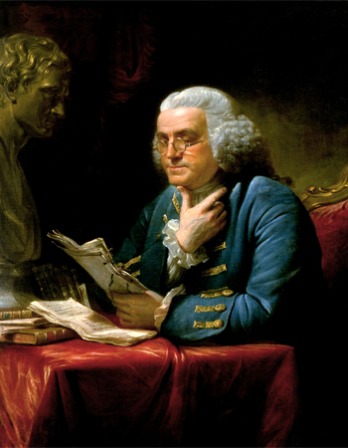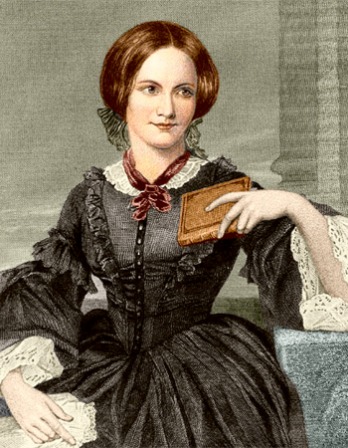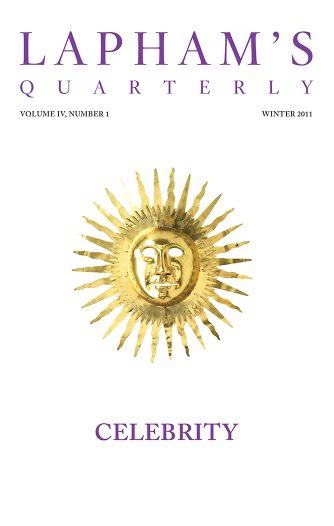The law is far, the fist is near.
—Korean proverb,Circumlocution
Charles Dickens portrays a lawsuit.
Jarndyce and Jarndyce drones on. This scarecrow of a suit has, in course of time, become so complicated that no man alive knows what it means.
The parties to it understand it least, but it has been observed that no two Chancery lawyers can talk about it for five minutes without coming to a total disagreement as to all the premises. Innumerable children have been born into the cause; innumerable young people have married into it; innumerable old people have died out of it. Scores of persons have deliriously found themselves made parties in Jarndyce and Jarndyce without knowing how or why; whole families have inherited legendary hatreds with the suit. The little plaintiff or defendant who was promised a new rocking horse when Jarndyce and Jarndyce should be settled has grown up, possessed himself of a real horse, and trotted away into the other world. Fair wards of court have faded into mothers and grandmothers; a long procession of chancellors has come in and gone out; the legion of bills in the suit have been transformed into mere bills of mortality; there are not three Jarndyces left upon the earth perhaps since old Tom Jarndyce in despair blew his brains out at a coffeehouse in Chancery Lane; but Jarndyce and Jarndyce still drags its dreary length before the court, perennially hopeless.
Jarndyce and Jarndyce has passed into a joke. That is the only good that has ever come of it. It has been death to many, but it is a joke in the profession. Every master in Chancery has had a reference out of it. Every chancellor was “in it,” for somebody or other, when he was counsel at the bar. Good things have been said about it by bluenosed, bulbous-shoed old benchers in select port-wine committee after dinner in hall. Articled clerks have been in the habit of fleshing their legal wit upon it. The last lord chancellor handled it neatly, when, correcting Mr. Blowers, the eminent silk gown who said that such a thing might happen when the sky rained potatoes, he observed, “or when we get through Jarndyce and Jarndyce, Mr. Blowers”—a pleasantry that particularly tickled the maces, bags, and purses.
How many people out of the suit Jarndyce and Jarndyce has stretched forth its unwholesome hand to spoil and corrupt would be a very wide question. From the master upon whose impaling files reams of dusty warrants in Jarndyce and Jarndyce have grimly writhed into many shapes, down to the copying clerk in the Six Clerks’ Office who has copied his tens of thousands of Chancery folio pages under that eternal heading, no man’s nature has been made better by it. In trickery, evasion, procrastination, spoliation, botheration, under false pretenses of all sorts, there are influences that can never come to good. The very solicitors’ boys who have kept the wretched suitors at bay, by protesting time out of mind that Mr. Chizzle, Mizzle, or otherwise was particularly engaged and had appointments until dinner, may have got an extra moral twist and shuffle into themselves out of Jarndyce and Jarndyce. The receiver in the cause has acquired a goodly sum of money by it but has acquired too a distrust of his own mother and a contempt for his own kind. Chizzle, Mizzle, and otherwise have lapsed into a habit of vaguely promising themselves that they will look into that outstanding little matter and see what can be done for Drizzle—who was not well used—when Jarndyce and Jarndyce shall be got out of the office. Shirking and sharking in all their many varieties have been sown broadcast by the ill-fated cause; and even those who have contemplated its history from the outermost circle of such evil have been insensibly tempted into a loose way of letting bad things alone to take their own bad course, and a loose belief that if the world go wrong, it was in some offhand manner never meant to go right.

Charles Dickens
From Bleak House. In 1829, at seventeen, Dickens took a job as a court stenographer; within a decade his popular serial novels had established him as a London celebrity. Though Bleak House is now regarded as one of his masterpieces, a contemporary reviewer dismissed it as “stale and commonplace satire upon the length and expense of Chancery proceedings” and suggested a more accurate title might be The Odd Folks That Have to Do with a Long Chancery Suit.




